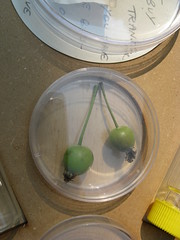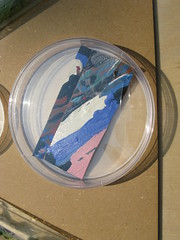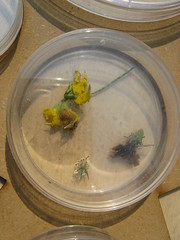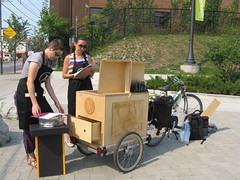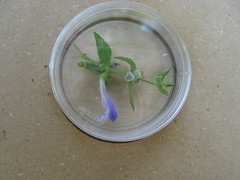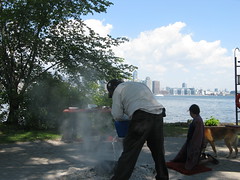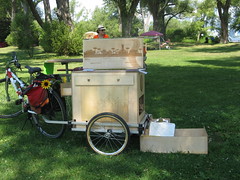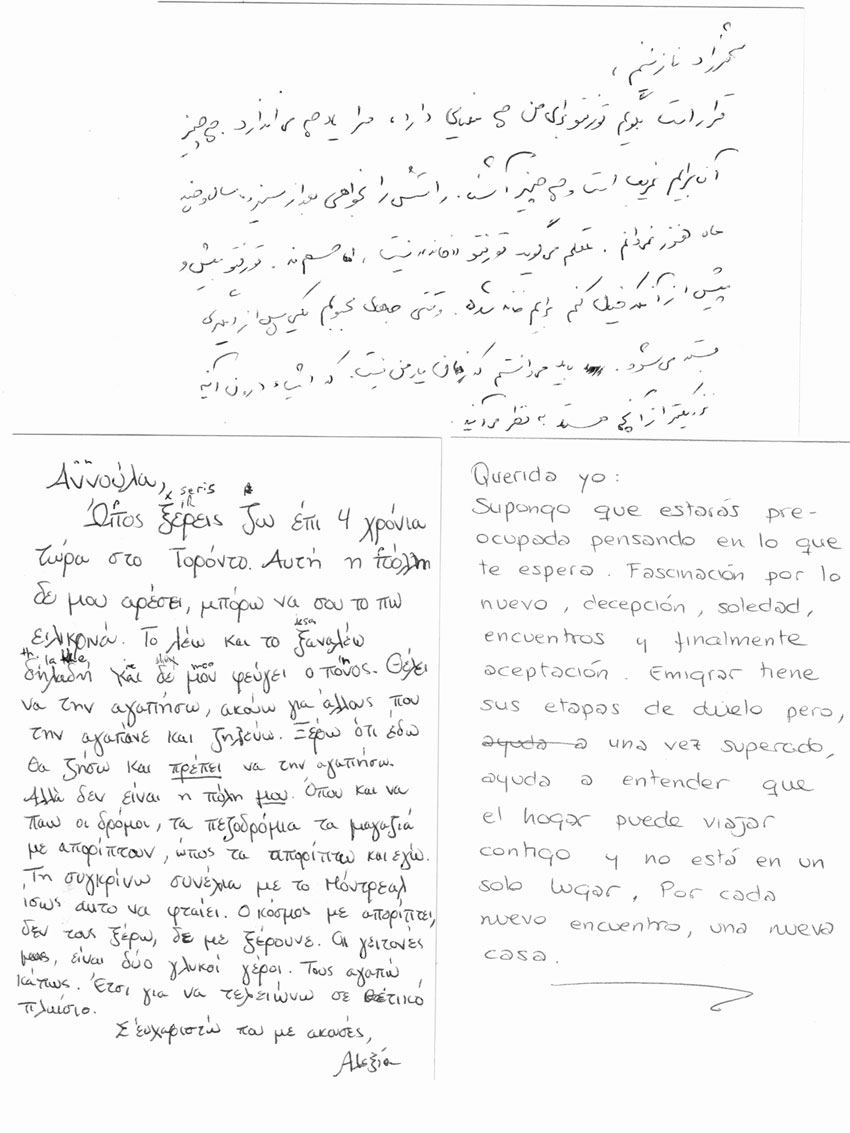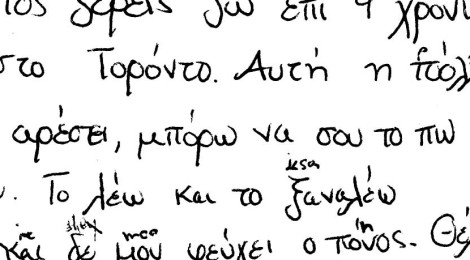
CRLCC Translation Research Summer School – Glendon College
On June 26 Elena Basile was invited to conduct a workshop on Transitions in Progress in the context of the CRLCC Translation Research Summer School at Glendon College, York University. The theme for this year was Translation, Language and Place — indeed a very fitting theme for our project as a whole, since one of the overarching concerns of Transitions in Progress relates to how city dwellers navigate (and shape) the linguistic geographies of Toronto in their everyday movements across a variety of public, semi-public, private and virtual spaces.
Here are her remarks:
Toronto is an officially Anglophone city and yet the soundscapes of its languages are extremely complex and varied. Besides the patterns of language expectation that have accrued over time in neighbourhoods of relatively recent ethnic settlement (from Little Korea on Bloor between Bathurst and Christie, to Little India on Gerrard, to the Chinatowns on Spadina and on Broadview, to Little Italy on College and on St. Clair West etc…), the urban space seems to be relatively hospitable to an immense variety of languages spoken in parks, on cellphones, in (fast disappearing) convenience stores and grocery vendors, but especially in the semi-public spaces that are restaurants, sports bars and cafés. Open spaces such as squares and parks or school yards are particularly richly textured spaces of linguistic diversity. You just need to stand in Dundas Square for 10 minutes on any one day, but especially holidays, to have your ears filled with the sounds of as much Arabic, Cantonese, Mandarin, Vietnamese, Russian, Spanish or any other language as English. As the poet/translator of the Transitions in Progress group, I am intrigued by how people navigate the city’s soundscapes. How we choose to pay attention or ignore the different degrees of foreigness of sound and gesture patterns enacted by the people we cross paths with, we walk by, or are forced to sit beside in the subway or on the streetcar. How hospitable is the other’s language to our own? How hospitable is our language to the other? How and when do we feel at home in a language that may, or may not, be the same language we grew up in?
I thought I would ask these questions at the workshop and produce an exercise in listening, particularly in a setting where participants where not familiar with one another, and yet where a certain kind of intimate encounter with the other’s language could be fostered. So, after quite a bit of pre-workshop brainstorming of my ideas with the Summer School participants themselves, I chose to ask people to take a few minutes to write a letter to a friend in their language of choice and then exchange these letters with another participant. I asked them to describe in the letter how they felt about Toronto: which parts of the city felt hospitable, which didn’t. Were there places in town that reminded them of somewhere else?
The conceit was simple: writing — rather than speaking, and writing to a friend at that — would foster enough of a sense of intimacy and trust to loosen one’s public persona and possibly allow for the surfacing of not fully articulate feelings and sensations about the city.
The second segment of the exercise required that the participants work in pairs, and read out loud each other’s pieces. It gave way to a series of revealing and interesting moments. There were pairs who found themselves reading a completely foreign script altogether, and having to rely heavily on the letter writer’s help to sound out the marks on the page before they could even start to ask for a semantic translation. There were participants who listened to each other read in their own language, and finding themselves striving to figure out the meaning just by listening for affect and recognizing mood and tone in the other person’s voice and gestures. Other participants who had written in a mother tongue they hardly used for the past 20 years of so were suddenly hit by the foreignness of their own language when read out loud by another – the discovery of strangeness of a language no longer belonging to the everyday self. This is only a tiny fraction of the complex webs of dynamic interaction that took place between body, voice and written signs, and I hope that those who participated in the workshop — and maybe recognize their own handwriting — can add their own perspective.
All in all the workshop provided an intimate encounter with the uncanny aspects of strangely familiar sounds, signs, and bodily patterns of meaning-making – their effects of decentering, awkwardness and sudden sense of vulnerability. What struck me the most though was how quickly each of us sought help to figure out meaning, to give it and to receive it. To listen to clues that would orient us, even briefly among a mass of undecipherable signs. Toronto might be this for many.

